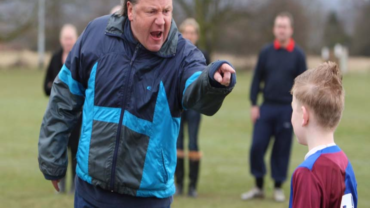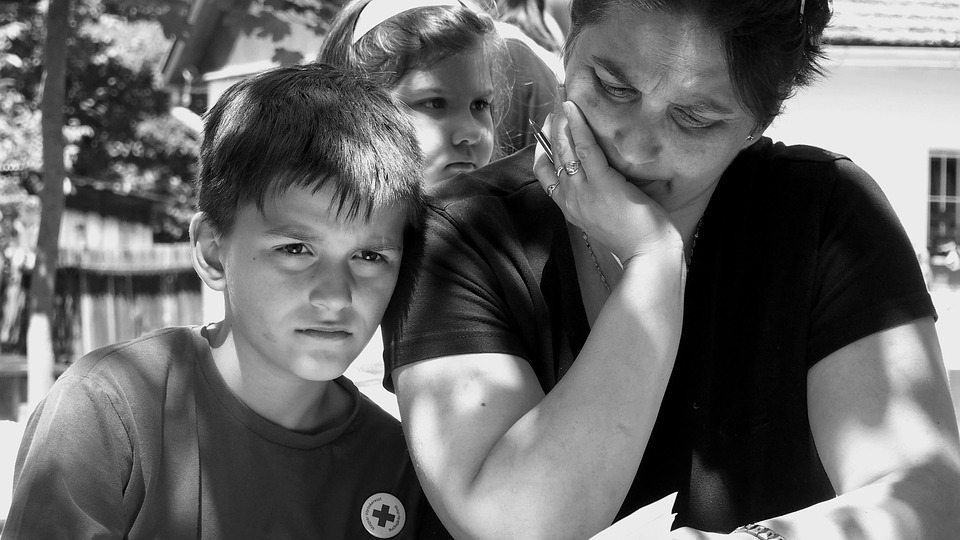via ResearchGate: Children with harsh parents were more influenced by the opinion of their peers.
In a study that tracked 1,500 students beginning in seventh grade, researchers found that those who were parented harshly were more likely by ninth grade to place more importance on their peer group than other responsibilities, including obeying their parents’ rules. This meant they were more likely to engage in risky behaviors in eleventh grade, with males seeing greater delinquency like hitting and stealing, and females more frequent early sexual behavior.
We spoke to lead author Rochelle F Hentges about the study.
ResearchGate: What motivated this study?
Rochelle Hentges: We wanted to better understand how and why some children leave education early, either by dropping out of high school or not completing college. Prior research has indicated that children growing up in harsh or adverse environments are more likely to drop out. But we’re still not sure what it is about these environments that affect educational achievement. Evolutionary theories have suggested that, because harsh environments can make survival uncertain, individuals growing up in harsh environments are primed to try and capitalize on immediate rewards rather than focusing on long-term goals or outcomes. For example, research has found that children growing up in harsh or unstable environments are more likely to take a smaller, but immediate reward (two M&Ms) instead of waiting to get a larger reward (five M&Ms). Many of the messages that children get about why education is important are related to long-term goals, like getting into a good college or getting a better-paying job. I hypothesized, based on this evolutionary theory, that children growing up in environments with harsh parenting would be less likely to complete high school or go to college.
RG: What do you consider to be harsh parenting?
Hentges: In our study, harsh parenting was considered to be acts of verbal or physical aggression, such as yelling, name-calling, shoving, or threatening the child.
RG: What were the results of your study?
Hentges: We found that harsh parenting in seventh grade (around age 12-13) predicted an extreme peer orientation in eighth grade. An extreme peer orientation means that the child is more influenced by what their peers think or want instead of their parents. For example, they’re more likely to blow off doing homework if a friend calls and wants them to hang-out and they’re more likely to disobey parents’ rules if it means going along with what their friends want to do. This extreme peer orientation predicted higher delinquency for both boys and girls and early sexual behavior for girls in eleventh grade. For boys, higher delinquency predicted lower educational attainment at age 21, while for girls it was early sexual behavior that predicted lower educational attainment. When we ran our analyses, we controlled for prior standardized test scores, GPA, and students’ beliefs about how important school was to them. We also controlled for other potential contextual factors that might have influenced educational attainment, like race, family income, and the parents’ education level.
RG: How did you conduct the study?
Hentges: We used a pre-existing dataset from the Maryland Adolescent Development in Context Study that had collected information from close to 1,500 students beginning in seventh grade. The sample was collected in a large county in Maryland near Washington, D.C. and was diverse in terms of race, income, and geographical location (urban, rural, and suburban).
RG: How does the peer relationships of children with harsh parenting differ to those without?
Hentges: We used a continuous scale of harsh parenting that ranged from very little to a lot. We found that children who were exposed to higher levels of harsh parenting were more likely to say that it was okay to break their parents’ rules in order to keep their friends and that they spent more time on activities with friends instead of other things they should be doing, like homework or chores. So children with harsher parents may be more susceptible to peer pressure.
RG: What do you think schools can do to increase the engagement of these students?
Hentges: Something that is unique about evolutionary life history theory is that it tries to explain why children in harsh environments would focus on immediate rewards instead of long-term goals. If the future is uncertain, there is a certain adaptive value to capitalizing on what’s in front of you rather than putting a lot of resources toward something that might not pay off. So telling students that education is important for their long-term success may motivate children growing up in stable environments with warm, supportive parents. But for other children, this message may not mean as much because they’re focused on surviving and getting through their day-to-day life. One thing that schools may be able to do to increase engagement is to make education more rewarding and fulfilling in the short-term. For example, students often report that they enjoy working with and learning from peers and hands-on projects or experiences, like going to museums and zoos. Importantly, these sorts of classroom activities tend to decrease from elementary to high school. But if we can make school more enjoyable in the short-term, we may be able to keep students engaged in education for longer.

















